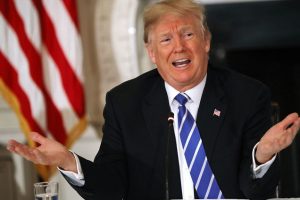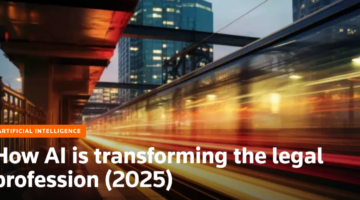 Four weeks ago, I wrote a piece criticizing the idea that unfettered expression would lead to violence. Since then, some very high-profile incidents of murder and attempted murder have occurred. Although I share in the outrage that political and religious divides are the source of so much hate, I also couldn’t help from cringing at the thought that these tragedies would be used to further the blame game. Unfortunately, inexplicably, and yet somehow predictably, that blame game was taken up by none other than the President of the United States.
Four weeks ago, I wrote a piece criticizing the idea that unfettered expression would lead to violence. Since then, some very high-profile incidents of murder and attempted murder have occurred. Although I share in the outrage that political and religious divides are the source of so much hate, I also couldn’t help from cringing at the thought that these tragedies would be used to further the blame game. Unfortunately, inexplicably, and yet somehow predictably, that blame game was taken up by none other than the President of the United States.
In a dark week, however, there was some encouraging news: a majority of Americans are not as predictably absurd as this president. A recent poll demonstrated that most Americans do not hold the president directly responsible for the mail bombers actions. This is encouraging because it reflects an important awareness of how incredibly difficult it is to gauge the impact of rhetoric on action. Sane Americans have always been able to absorb pugnacious, even belligerent rhetoric regarding politics without resorting to acts of violence. Obsessive and violent individuals such as the mail bomber or the anti-Semite who attacked a Jewish temple in Pittsburgh are motivated by delusions drawn from unhinged mental states. A “normal” person simply does not shoot those they have never met nor interacted with, and it is vitally important that we not limit our freedom of speech based on how these disturbed people might react.
That said, it is perfectly reasonable to demand moral accountability from this president for his inflamed speech. Living in any pluralistic society requires some degree of decorum. However, while calling the press “the enemy of the people” is outrageous and reprehensible, such a statement in no way amounts to the legal definition of incitement. Of course, it is undeniable that the awesome power of speech includes the ability to kill, but proving someone’s speech is a direct cause of violence is rightfully difficult to establish given First Amendment protections. Moreover, when that protection has been eroded, it has only backfired in amplifying the hate, not limiting it.

How AI Is Transforming The Legal Profession (2025)
A survey of professionals reveals the impact of legal work, clients, concerns, and future roles.
As I wrote before, the passage of time has completely vindicated the premise that censorship is not necessary to maintain stability. History has shown that declines in violence are more attributable to larger psychological changes induced by increased standards of propriety and general economic benefit than censorship laws. In other words, we are not going to censor or prosecute our way out of the problem of political violence, and other, better, methods of reducing violence exist to serve society.
In the long run, only by reducing the appeal of anti-Semitism and extreme political ideology will these problems be solved. Censoring the conversation is one of the worst things we can do. As Maajid Nawaz has effectively argued in the radical Islamic context, censoring inflammatory rhetoric only increases the hysteria creating a “he who must not be named” Voldemort effect. Rather, a strong effort must be made to intellectually terminate the far-right ideologies that have recently inspired violence. To do so requires devising a strategy to challenge and isolate it in the communities where it exists, and then backing the voices that do. In implementing this strategy, the emphasis must be on principles but also facts because they are on our side. The unravelling of the genome is something that should unite us in a mutually shared hereditary permeability, it is also an effective counter to blood and soil politics.
It is also important to keep in mind that we are still living in an unprecedented era of peace, even with such heightened rhetoric, and that is itself a cause of celebration. However, if we are going to curb violence where it still exists we must try to understand it rather than censor it. The biggest dogmatic mistake regarding violence is many see those who commit gruesome crimes as being somehow incapable of morality, when in fact the exact opposite is true. The mail bomber and the temple shooter were plagued by an overabundance of morality, at least as conceived in their own unhinged minds. They undoubtedly felt that what they were doing was right, and that the victims were wrong or deserving of death. This is a grotesque inversion of morality that must be confronted head on, not just by locking up those who act on it, but by winning the war of ideas in defining what is right and wrong in our society.
The ultimate danger of not engaging and instead choosing to shut down the rhetoric is that we surrender the conversation to the extremists. As Zechariah Chafee astutely observed (at a time when deadly politically based bombings were more regularly occurring events), when it comes to extremists: “suppression of their mere words shows a fear of them, which only encourages them to greater activity in secret. A widespread belief is aroused that the government would not be so anxious to silence its critics unless what they have been saying is true.”

Private Practice Lawyers: Rater Your Work With In-House Counsel
Please share your thoughts in this brief and anonymous survey.
The best policy to limit extremism therefore is to confront it, expose it, and most importantly to challenge it. Of course, there exists another equally important way to combat extremism, and that is to get out there and VOTE.
 Tyler Broker is the Free Expression and Privacy Fellow at the University of Arizona James E. Rogers College of Law. His work has been published in the Gonzaga Law Review and the Albany Law Review. Feel free to email him or follow him on Twitter to discuss his column.
Tyler Broker is the Free Expression and Privacy Fellow at the University of Arizona James E. Rogers College of Law. His work has been published in the Gonzaga Law Review and the Albany Law Review. Feel free to email him or follow him on Twitter to discuss his column.